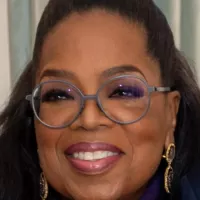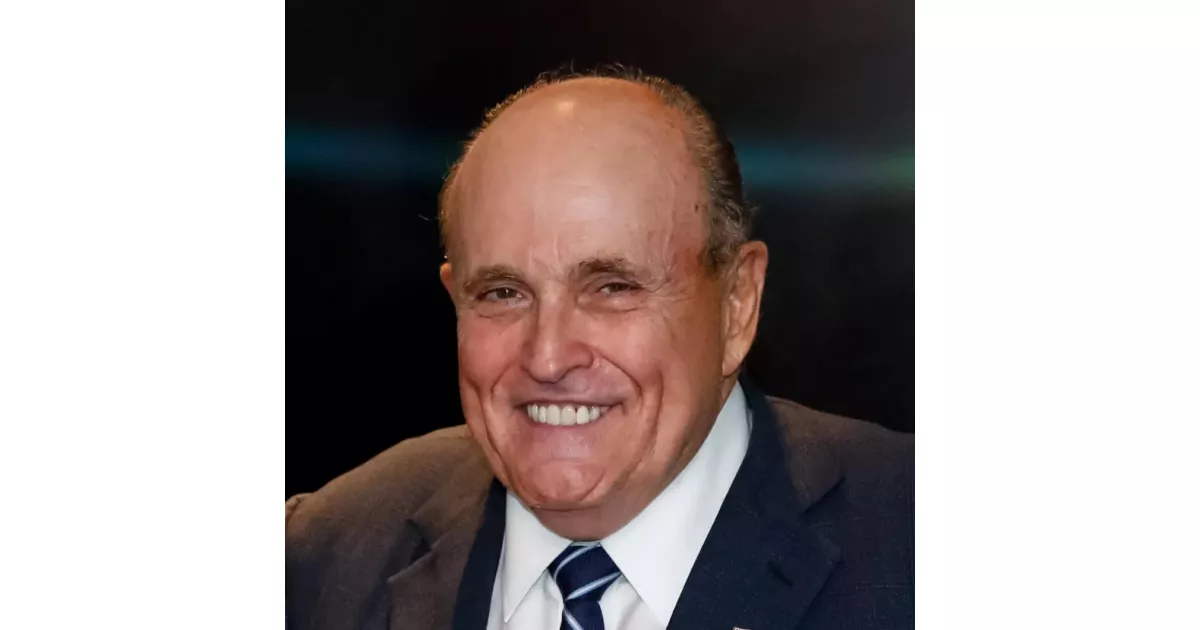Public opinion and media debates around Rudy Giuliani—discover key moments of controversy.
Rudy Giuliani is an American politician and disbarred lawyer best known for serving as the 107th Mayor of New York City from 1994 to 2001. Prior to his mayoral tenure, he held significant positions within the Department of Justice, including United States Associate Attorney General and United States Attorney for the Southern District of New York. While initially admired for his leadership, particularly after 9/11, his later career has been marked by controversy, leading to his disbarment.
February 1987: Arrest of Richard Wigton
In February 1987, Giuliani had officers handcuff veteran stock trader Richard Wigton and march him through the company's trading floor, with Wigton in tears, for alleged insider trading.
1989: Giuliani charged Milken under RICO Act
In 1989, Rudy Giuliani charged Michael Milken under the RICO Act with 98 counts of racketeering and fraud. This case was highly publicized, and Milken was indicted by a grand jury on these charges.
1993: Ineffective Radios Following 1993 World Trade Center Bombings
Following the 1993 World Trade Center bombings, the radios used by the fire department were criticized for their ineffectiveness. These radios were still in use during the 9/11 attacks, despite years of complaints from emergency services responders. The 9/11 Commission Report noted that the lack of preparedness, including the faulty radios, could have led to the deaths of first responders during the 9/11 attacks.
1993: World Trade Center Bombing
In 1993, the World Trade Center bombing occurred, which was cited by opponents of Giuliani's decision to locate the New York City Office of Emergency Management headquarters inside the 7 World Trade Center building. They perceived the office as a potential target for future terrorist attacks.
1993: Faulty Analog Radios
In 1993, the radios used by firefighters were old and analog. A mayoral office study in 1994 indicated they were faulty, and in March 2001 the replacement radios were recalled, leaving firemen with the old analog radios from 1993
1994: Mayoral Office Study of Faulty Radios
In 1994, a mayoral office study indicated that the radios used by firefighters were faulty. This study highlighted the need for replacement radios, which were later purchased in a no-bid contract with Motorola.
February 1996: Hauer's Memo Recommending Brooklyn Location
In February 1996, a memo from Jerome Hauer recommended locating the emergency command center in Brooklyn, citing security concerns about buildings in Lower Manhattan. The memo stated, "The [Brooklyn] building is secure and not as visible a target as buildings in Lower Manhattan."
1996: Bratton on Time Magazine Cover
In 1996, Bill Bratton was featured on the cover of Time magazine. Giuliani reportedly forced Bratton out after two years.
May 1997: Giuliani Blames Hauer for WTC Location Decision
In May 1997, Giuliani attributed the responsibility for selecting the location of the New York City Office of Emergency Management headquarters inside 7 World Trade Center to Jerome M. Hauer. Hauer, who served under Giuliani from 1996 to 2000, disputed this account, claiming he had recommended a location in Brooklyn but was overruled by Giuliani.
1998: NYPD Opposes Command Center Location
In 1998, The New York City Police Department voiced concerns regarding the location of the city's emergency command center at the World Trade Center site. These concerns were overridden by the Giuliani administration.
March 2000: Dorismond Shooting Inflamed Relations
In March 2000, the New York Police Department's fatal shooting of Patrick Dorismond inflamed Rudy Giuliani's strained relations with the city's minority communities, and Hillary Clinton seized on it as a major campaign issue.
October 2000: Considered Removing Term Limits
In October 2000, Giuliani considered supporting city council efforts to remove their own term limits, although he was not in favor of ending consecutive mayoral term limits.
2000: Hauer's Tenure Ends
In 2000, Jerome Hauer's tenure under Giuliani ended, having served since 1996 before being appointed as New York City's first director of emergency management. After his tenure ended he has refuted Giuliani's account of him recommending the World Trade Center as a location for the emergency center.
March 2001: Recall of Replacement Radios
In March 2001, replacement radios that had been purchased in a $33 million no-bid contract with Motorola were recalled after a probationary firefighter's calls for help at a house fire could not be picked up by others at the scene. As a result, firemen were left with the old analog radios from 1993.
October 2001: Study Finds Inadequate Protective Gear for Cleanup Workers
In October 2001, a study by the National Institute of Environmental Safety and Health found that cleanup workers lacked adequate protective gear at the World Trade Center site.
February 2007: Fire Fighters Accuse Giuliani of Rushing Recovery Effort
In February 2007, the International Association of Fire Fighters issued a letter asserting that Giuliani rushed to conclude the recovery effort at Ground Zero after gold and silver were recovered from World Trade Center vaults. They alleged this prevented the remains of many victims from being recovered. Lawyers seek to interview Giuliani under oath.
May 13, 2007: Chris Wallace Interviews Giuliani
On May 13, 2007, television journalist Chris Wallace interviewed Rudy Giuliani about his 1997 decision to locate the command center at the World Trade Center. During the interview, Giuliani laughed and stated that Jerome Hauer recommended the WTC site, which Wallace refuted with a photocopy of Hauer's letter urging Giuliani to locate the command center in Brooklyn.
June 2007: Whitman Claims Giuliani Blocked Respirator Use at WTC Site
In June 2007, Christie Todd Whitman, former EPA director, claimed that Giuliani blocked the EPA's push for workers at the WTC site to wear respirators. She believed this led to subsequent lung diseases and deaths suffered by WTC responders. Giuliani's campaign denied these claims, stating that all workers were instructed to wear respirators.
January 2008: Memo Details Police Opposition to WTC Command Center Location
In January 2008, an eight-page memo was revealed detailing the New York City Police Department's opposition in 1998 to locating the city's emergency command center at the World Trade Center site. The Giuliani administration overrode these concerns.
April 2009: Opposed Paterson's same-sex marriage push
In April 2009, Giuliani strongly opposed Governor Paterson's push for same-sex marriage in New York, predicting a Republican resurgence in 2010.
2009: Criticized Obama administration
In 2009, Giuliani criticized the Obama administration and U.S. Treasury Secretary Timothy Geithner for lacking executive competence in handling the 2008 financial crisis.
2010: Giuliani Supports Removal of MEK from Terrorist List
In 2010, Giuliani spoke in support of removing the People's Mojahedin Organization of Iran (MEK) from the U.S. State Department's list of Foreign Terrorist Organizations. He and others reportedly received tens of thousands of dollars in speaking fees to advocate for the MEK, leading to scrutiny and potential legal issues under the PATRIOT Act.
2014: Firtash Arrested in Vienna
Since his 2014 arrest in Vienna, at the request of American authorities, Dmytro Firtash has been living there on $155 million bail, fighting extradition to the US on bribery and racketeering charges.
February 2015: Controversial Remarks About President Obama
In February 2015, Giuliani stated he did not believe President Obama "loves America," sparking widespread criticism and death threats.
June 9, 2016: Trump Tower meeting
In late August, Giuliani said the June 9, 2016, Trump Tower "meeting was originally for the purpose of getting information about Hillary Clinton".
August 2016: Radical Islamic Terrorist Attack Claim
In August 2016, while campaigning for Trump, Giuliani claimed the U.S. had no successful radical Islamic terrorist attacks in the eight years before Obama, a statement fact-checkers disputed.
2016: Giuliani Responds to Debunked Theory
In September 2019, Tom Bossert, a former Homeland Security Advisor, called Giuliani's theory that Ukraine was involved in 2016 U.S. election interference as "debunked," to which Giuliani responded that Bossert "doesn't know what the hell he's talking about."
2017: Firtash Characterized as Part of Russian Organized Crime
In 2017, the Justice Department characterized Dmytro Firtash, a Ukrainian oligarch prominent in natural gas, as in the "upper echelon of Russian organized crime".
2018: Giuliani Paid by Fraud Guarantee
In 2018, Rudy Giuliani was paid $500,000 to consult for Lev Parnas' company, Fraud Guarantee. Trump supporter attorney Charles Gucciardo paid Giuliani in two $250,000 payments on behalf of Fraud Guarantee.
May 2019: Giuliani Urges Ukraine to Investigate Burisma and Manafort
Beginning in at least May 2019, Rudy Giuliani urged Ukraine's president, Volodymyr Zelenskyy, to investigate the oil company Burisma, which had Joe Biden's son Hunter Biden on its board, and to check for irregularities in the investigation of Paul Manafort. Giuliani stated that these investigations would benefit his client's defense and had the support of Donald Trump.
May 2019: Giuliani Praises Ukrainian Prosecutor Yuriy Lutsenko
In May 2019, Rudy Giuliani described Ukraine's chief prosecutor Yuriy Lutsenko as a "much more honest guy" than his predecessor, Viktor Shokin.
July 2019: Report on Giuliani's Ukrainian Liaisons
In July 2019, BuzzFeed News reported that Soviet-born Americans Igor Fruman and Lev Parnas acted as liaisons between Rudy Giuliani and Ukrainian government officials. These individuals, who were also Republican donors, had not registered as foreign agents nor been approved by the State Department. Giuliani dismissed the report as an attempt to cover up allegations of criminality by the Biden family.
July 2019: Firtash Hires Trump and Giuliani Associates
In July 2019, Dmytro Firtash hired Joseph diGenova and his wife Victoria Toensing, associates of Donald Trump and Rudy Giuliani, on Lev Parnas' recommendation.
August 2019: Giuliani's Phone Calls in 2019
The House Intelligence Committee's report included Rudy Giuliani's phone records between April and August 2019.
September 2019: No Evidence of Wrongdoing by the Bidens
By September 2019, despite Giuliani's efforts, there was no evidence of any wrongdoing by the Bidens.
September 2019: Giuliani Changes Stance on Ukrainian Prosecutors
In September 2019, after Yuriy Lutsenko was removed from office, Rudy Giuliani reversed his stance, stating that Viktor Shokin was the one people "should have spoken to", and that Lutsenko acted "corruptly" and was placed in the position by Joe Biden to undermine the case.
September 2019: Giuliani Confirms Request to Investigate Biden
In September 2019, amid reports of a whistleblower alleging misconduct related to Ukraine, Rudy Giuliani initially denied trying to get Ukrainian officials to investigate Joe Biden, but seconds later admitted, "Of course I did." He appeared to confirm that President Trump withheld military assistance to Ukraine pending the investigation.
September 2019: Firtash's Attorneys Obtain Statement from Shokin
In September 2019, attorneys for Dmytro Firtash obtained a statement from Viktor Shokin, the former Ukrainian prosecutor, falsely asserting that Joe Biden had him fired to stop the Burisma investigation. Rudy Giuliani promoted this statement as evidence of wrongdoing by the Bidens.
October 2, 2019: Disinformation Packet Delivered to Capitol Hill
On October 2, 2019, State Department Inspector General Steve Linick delivered a packet of apparent disinformation regarding President Biden and former ambassador to Ukraine, Marie Yovanovitch, to Capitol Hill. Giuliani acknowledged he passed the packet to Mike Pompeo.
October 11, 2019: Giuliani Under Investigation for Ukraine Activities
On October 11, 2019, The New York Times reported that the U.S. Attorney for the Southern District of New York was investigating Rudy Giuliani for potentially violating lobbying laws related to his activities in Ukraine.
October 2019: Giuliani Hires Jon Sale for Impeachment Inquiry
In October 2019, Rudy Giuliani hired former Watergate prosecutor Jon Sale to represent him in the House Intelligence Committee's impeachment investigation. The committee issued a subpoena to Giuliani for documents related to the Ukraine scandal.
November 2019: Giuliani Admits He Wanted Yovanovitch Removed
In a November 2019 interview, Rudy Giuliani confirmed he "needed Yovanovitch out of the way" because she was going to make his investigations difficult. He claimed the State Department would investigate the matter.
November 22, 2019: Giuliani Claims to Have Evidence of Democratic Conspiracy
On November 22, 2019, Rudy Giuliani sent a letter to Senator Lindsey Graham, claiming to have evidence from Ukrainian witnesses of a Democratic criminal conspiracy to prevent Donald Trump's election and remove him from office, including bribery, money laundering and Hobbs Act extortion by the Biden family. He requested Graham's assistance in obtaining visas for these witnesses to testify.
December 3, 2019: House Intelligence Committee Report Includes Giuliani's Phone Records
On December 3, 2019, the House Intelligence Committee's report included Rudy Giuliani's phone records from April to August 2019, showing contact with Kurt Volker, Devin Nunes, Lev Parnas, the White House switchboard, and an unidentified White House official listed as "-1".
December 2019: Giuliani Returns to Ukraine for Documentary
In December 2019, while the House Judiciary Committee began impeachment inquiry hearings, Rudy Giuliani returned to Ukraine to interview former officials for a documentary intended to discredit the impeachment proceedings.
2019: Giuliani Represented Alejandro Betancourt López
In late 2019, Rudy Giuliani represented Venezuelan businessman Alejandro Betancourt López, meeting with the Justice Department to ask them not to bring charges against him.
2020: Legal Fees Incurred After 2020 Election
By 2023, Rudy Giuliani had reportedly incurred seven-figure legal fees in cases related to Donald Trump and the attempts to overturn the 2020 presidential election.
2020: 2020 Presidential Election
In 2020, Rudy Giuliani's efforts to overturn the results of the presidential election led to an investigation.
June 2021: Giuliani's Law License Suspended
In June 2021, Rudy Giuliani had his license to practice law suspended in the state of New York, pending an investigation related to his efforts to overturn the results of the 2020 presidential election.
April 2023: Giuliani Asks Trump for Money
In April 2023, Rudy Giuliani and his lawyer Robert Costello reportedly met twice with Donald Trump at Mar-a-Lago to request financial assistance, leading to a Trump PAC paying $340,000 towards Giuliani's data storage bill.
February 7, 2024: Giuliani Claims Trump Campaign Owes Him Millions
On February 7, 2024, Rudy Giuliani stated in court during his bankruptcy case that the Trump campaign and the RNC owed him about $2 million, noting they had paid expenses but not all legal fees. He clarified that he did not want Donald Trump personally held responsible.
July 2, 2024: Giuliani Disbarred in New York
On July 2, 2024, Rudy Giuliani was disbarred in the state of New York.
July 12, 2024: Giuliani Bankruptcy Case Dismissed
On July 12, 2024, Rudy Giuliani's bankruptcy case was dismissed, and he was barred from filing for bankruptcy again for one year.
September 26, 2024: Giuliani Disbarred in District of Columbia
On September 26, 2024, Rudy Giuliani was disbarred in the District of Columbia under reciprocal discipline.
Mentioned in this timeline

Donald John Trump is an American politician media personality and...

Purdue Pharma originally the Purdue Frederick Company was a privately...

Oprah Winfrey is an influential American talk show host television...
Fox News Channel FNC is a conservative American news and...
Ukraine is a country in Eastern Europe the second-largest on...

Marco Rubio is an American politician attorney and diplomat He...
Trending
2 minutes ago Kimberly Birrell faces Tatjana Maria in WTA Dubai 2026 first-round match.
2 hours ago Alaska Airlines Expands International Routes from St. Louis and Introduces New Spring Menus.

3 hours ago Mertens vs. Bouzkova: WTA Dubai 2026 Prediction, Odds, and Preview of the Match
3 hours ago Top Reliable Used Cars for Value in 2026: A Comprehensive Guide

3 minutes ago Janice Tjen Dominates Dayana Yastremska in Dubai WTA 2026 Round 1 Match
4 hours ago Linda Noskova Advances in WTA Dubai: Predictions, Betting Odds, and Tournament Info
Popular

Kid Rock born Robert James Ritchie is an American musician...
Randall Adam Fine is an American politician a Republican who...

Pam Bondi is an American attorney lobbyist and politician currently...

Barack Obama the th U S President - was the...
The Winter Olympic Games a major international multi-sport event held...

XXXTentacion born Jahseh Dwayne Ricardo Onfroy was a controversial yet...
